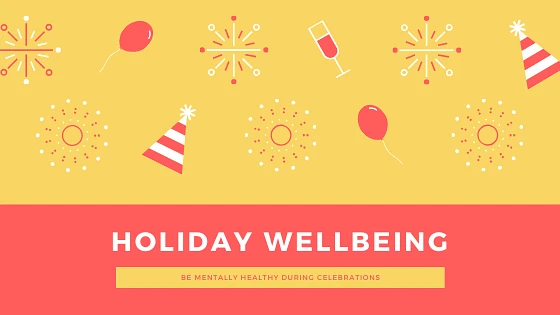Happy Holidays Zag Families!
As your students return home for the next few weeks, we hope that rest is at the forefront of their priorities. The end of the semester is one of the most stressful times of the year for them, and this has undoubtedly been exacerbated by constant news of conflict overseas. Our students are increasingly more “plugged in” to what is going on throughout the world, and are still learning how to navigate their levels of control over these situations. In light of these events that may be contributing to pain or grief for your student and family, we have some proactive strategies that lean into our Jesuit principles of cura personalis and community care.
Have Open Conversations
Engaging your student in dialogue is an essential step toward rest for the remainder of their break. They may be grappling with a variety of stressors that they encountered while on campus, in addition to pressures that they feel due to persistent global conflict. Talking them through these stressors will help them know that these are not permanent states of being, and it helps to model how they can have difficult conversations with their friends and supports back on campus. Open-ended questions that encourage conversation can look like:
- How did you feel at the end of the semester?
- What worked well for you throughout the semester? How can you build on your strengths?
- What was challenging? What might you want to try differently next semester?
- How can I support you in pursuing overall well-being?
There can also be an acknowledgment and direct callout to the ongoing conflict, and we hope that space can be held for them to process whatever feelings they may have about that. If you anticipate that there may be a difficult conversation at a family gathering, we suggest checking out Loretta J. Ross’ video on “calling in” a family member rather than “calling them out” here.
Encourage Breaks
While it can be hard to get your student to step away from technology, unplugging is necessary for their brains to rest and recharge. Check out this Life Kit from NPR that talks more about taking breaks from anxiety-inducing news. Breaks could also look like:
- Physical rest – establishing or maintaining a routine from the semester that promotes getting enough sleep each night, taking naps, or meditating.
- Active recovery – as one might need after a hard workout, active recovery could mean going for a gentle walk that changes up the environment that they have been strained in.
- Promoting community – while self-care is important, it is often hard to maintain without the side of community care too. Encourage breaks away from technology with time with friends!
- Saying “no” – something that our Zags struggle with, the fear of missing out. Reinforce that it is okay to say “no” to an event or hangout, that they can make time later on when they have more capacity and they aren’t trying to “pour from an empty cup.” This can also include putting a pause on relationships that are unhealthy and are causing more harm than good.
Resources On-Campus and Online
We don’t expect our students to handle anything alone, and sometimes talking to a professional on-campus or online can be beneficial. Students may also find support from an affinity space that is affirming of their social identities or that leans into the Gonzaga mission for promoting social justice and care for the human experience. Here are some accessible resources that may be a good place for them to start:
Professionals On-Campus:
- The Center for Cura Personalis is a great place to start if your student isn’t sure where to go for support on-campus or in the community. The Refer form can also be filled out by family or friends when they have a concern about someone’s behavior. Our non-clinical case managers will help to provide support and connect students to wherever they need to go.
- We have a fully staffed counseling department at Health & Counseling Services who are available to meet with students to talk about anything they are going through in a free, confidential, and non-judgmental setting.
- Counseling staff have also created a Grief Support Group that meets regularly. Students can join by emailing Health & Counseling Services at studenthealth@gonzaga.edu or Tara Hiller, LMHC at hillert@gonzaga.edu.
- Mission & Ministry have a licensed counselor on staff and are happy to provide care or comfort to students going through hard times. Their student ministers are also in the residential halls and are ready to connect students to professional care or resources if needed.
- Gonzaga does not support any acts of hate or violence, and these offenses can be reported to our BIAS Team here.
Student-Led Affinity Spaces On-Campus
- Active Minds is a club dedicated to destigmatizing mental health and help-seeking behavior in student populations. They meet monthly and talk about a variety of topics that impact our student body’s well-being.
- The Mutual Aid Club works to translate the values of the Gonzaga mission into action for stigmatized and vulnerable populations. This includes learning about issues in the community and around the world and volunteering time or services in efforts that are beneficial.
- The Muslim Student Association and Jewish Student Union are cultural affinity clubs that are part of the University’s Unity Alliance of Cultural Clubs. Both provide space for students who are missing a sense of community around their social identities, and dialogue has been encouraged with respect to the ongoing conflict. To learn more about the variety of other affinity groups at Gonzaga, check out the Center for Student Involvement.
Resources Online
- StudentLinc (enter code: zagsupport) is our contracted telehealth service that all of our Zags have access to as part of their wellness fee. They have 24/7 crisis support, connection to counselors online or in-person, health check surveys, and tons of articles and other resources that could help your student when they are struggling. Please encourage them to check it out!
- The Wellness Toolbox is a curated list of online resources and downloadable applications that your student can access whenever they want more information on a specific health concern or behavior. This list is currently being updated, but many of the links and apps are still applicable to the topics of concern.
- There is an upcoming webinar on “Islamophobic and Antisemitic Discourse on Social Media” that the Gonzaga Center for the Study of Hate has promoted, and if this interests you or your student you can find the information to register here.
Wherever your student may be in terms of their levels of burnout and stress after this semester, we hope that these tips and resources help in some way while they are recovering over break. We look forward to welcoming them back in January and are always available when they need a little help. Happy holidays to you and your loved ones, and may this break be restful for you all!
With gratitude,
The Office of Health Promotion



